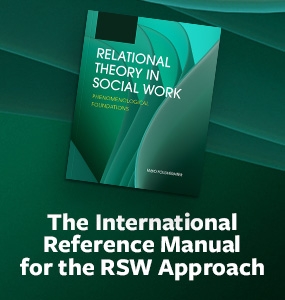Relational Social Work
Erickson
vol. 2, n. 2, October 2018
(pp. 3-3)
Editorial
Fabio Folgheraiter
Catholic University of Milan, Italy
This number of the online international Relational Social Work Journal hosts precious contributes of lecturers and social work researchers from several universities. As usual, the Journal number presents both theoretical and research articles that bring the attention to the relational approach of social workers in doing their work with people in need.
We have the honour to publish a reflection on the sense of care that professor Marian Barnes wrote inspired by stories of family carers. Social workers need to remember that we are all givers and receivers of care at some point in our lives. Social workers have to consider principles of the Ethic of care in order to ensure justice in condition of vulnerability, in relation to both individual care givers and care receivers.
On the same topic Corradini, Raineri and Avancini present a qualitative study on social work practices with disabled people and elders who live at home and need care. Through semi-structured interviews, the authors have collected good practices. Results from this study show that the most effective paths of aid are those in which social workers have heard the users’ and carers’ point of views, acting with respect and sensitivity.
Jan Horwath guides us in the child protection context. The author presents the challenge to do a needs assessment of children living in a dysfunctional and chaotic family. Social workers have to reflect on the meaning of good parenting, to consider environmental situation and parents’ willingness to change for their children welfare.
From Lithuania comes the experience of foster families’ self-help groups presented in Gvaldaite’s article. The author presents results from a qualitative research: narrative interviews were held both with families participating to the groups and coordinators. The research shows how self-help groups are space of authentic aid for foster families and promote personal and families’ growth.
Finally, McMullin discusses the importance for social worker of building relationships with children and young people in need, even if the social work intervention was not initially welcomed. Starting to consider that a young person may be engaged with a number of practitioners, the article presents a four stage relationship-based model to develop relationships with children and young people in care.
Thanks to all the authors for their commitment, that improves Relational social work studies.
Milan, October 2018




